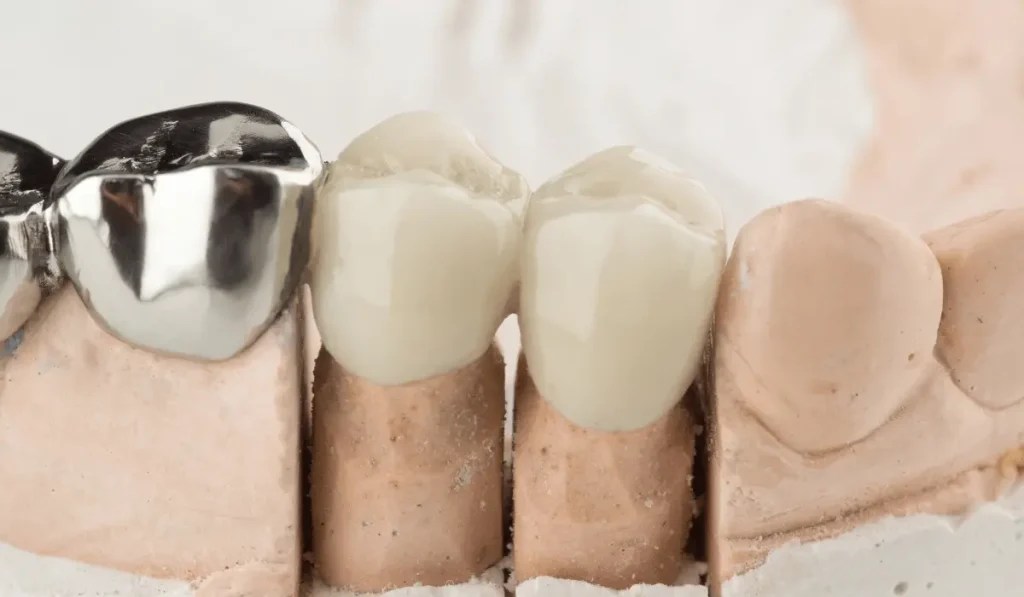Dental Bridges – Advantages and Disadvantages


A confident smile is a precious asset, and dental bridges have long been a popular choice for those looking to restore their smile and oral function. Whether you’ve lost a tooth due to decay, injury, or other dental issues, dental bridges offer a practical solution to bridge the gap and regain your smile’s aesthetics and functionality. A common restorative dental procedure dental eugene oregon offers the advantage of replacing missing teeth, improving both aesthetics and functionality. However, their disadvantages include the need for adjacent teeth to be prepared, potentially leading to structural changes and the possibility of future dental issues. However, like any dental procedure, dental bridges come with their own set of advantages and disadvantages. In this comprehensive guide, we will delve into the pros and cons of dental bridges to help you make an informed decision about whether they are the right option for your dental needs.
One of the most significant advantages of dental bridges is their ability to enhance your smile’s appearance. Bridges are custom-made to match the color, shape, and size of your natural teeth, ensuring a seamless and attractive result. They can dramatically improve your confidence by restoring your smile to its former glory.

Missing teeth can make everyday tasks such as eating and speaking more challenging. Dental bridges restore the functionality of your mouth by filling the gap created by the missing tooth. This allows you to chew food more comfortably and speak clearly, improving your overall quality of life.
When a tooth is lost, the adjacent teeth tend to shift into the empty space over time. This can lead to misalignment and bite issues. Dental bridges prevent this unwanted tooth movement, maintaining the proper alignment of your teeth.
Compared to some other tooth replacement options like dental implants, bridges are a relatively quick and non-invasive procedure. The process usually requires just a few dental visits to complete, making it a convenient choice for many patients.
Dental bridges are often more cost-effective than dental implants, making them a practical choice for individuals who are concerned about their budget. While the cost can vary depending on factors such as materials and location, bridges are generally a more affordable option.
To anchor the dental bridge, the adjacent teeth (known as abutment teeth) must be prepared by removing some of their enamel. This alteration is irreversible and can weaken the natural teeth. Over time, it may necessitate additional dental work on the abutment teeth.
The space under the artificial tooth in a dental bridge can be challenging to clean thoroughly. This can lead to an increased risk of decay and gum disease, especially if proper oral hygiene is not maintained.
While dental bridges are durable, they may not last as long as dental implants. On average, dental bridges have a lifespan of 5 to 15 years, depending on various factors, including oral hygiene and materials used. This means they may need to be replaced more frequently.
Dental bridges may not be suitable for all cases of tooth loss. For instance, if you have multiple missing teeth in a row or if the adjacent teeth are not healthy enough to support the bridge, other options like partial dentures or dental implants may be more appropriate.
Compared to dental implants, which provide a permanent tooth replacement solution, dental bridges are considered a more temporary option. This means that, over the long term, you may need to invest in multiple bridges or explore other alternatives.
Dental bridges offer several advantages, including aesthetic improvement, improved oral function, and cost-effectiveness. They can be an excellent solution for individuals looking to replace a missing tooth or teeth and restore their smile. However, it’s essential to consider the disadvantages as well, such as the alteration of adjacent teeth, the potential for decay and gum disease, and the shorter lifespan compared to dental implants. Before deciding on dental bridges, consult with Quest Dental to determine if they are the most suitable option for your specific dental needs.
We look forward to meeting you. Call 541-688-7278 or request an appointment online to set up your first visit. We’ll be in touch soon.